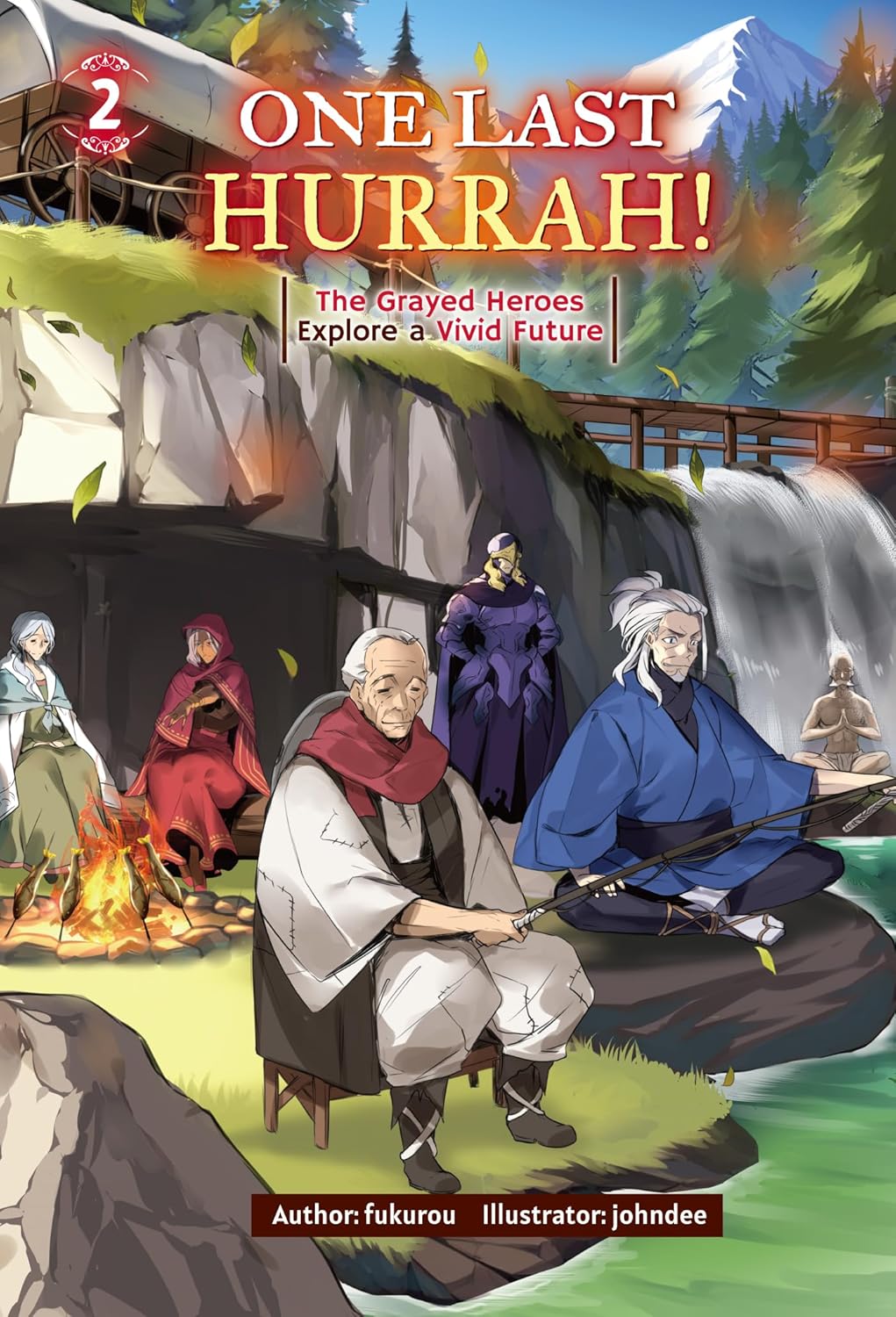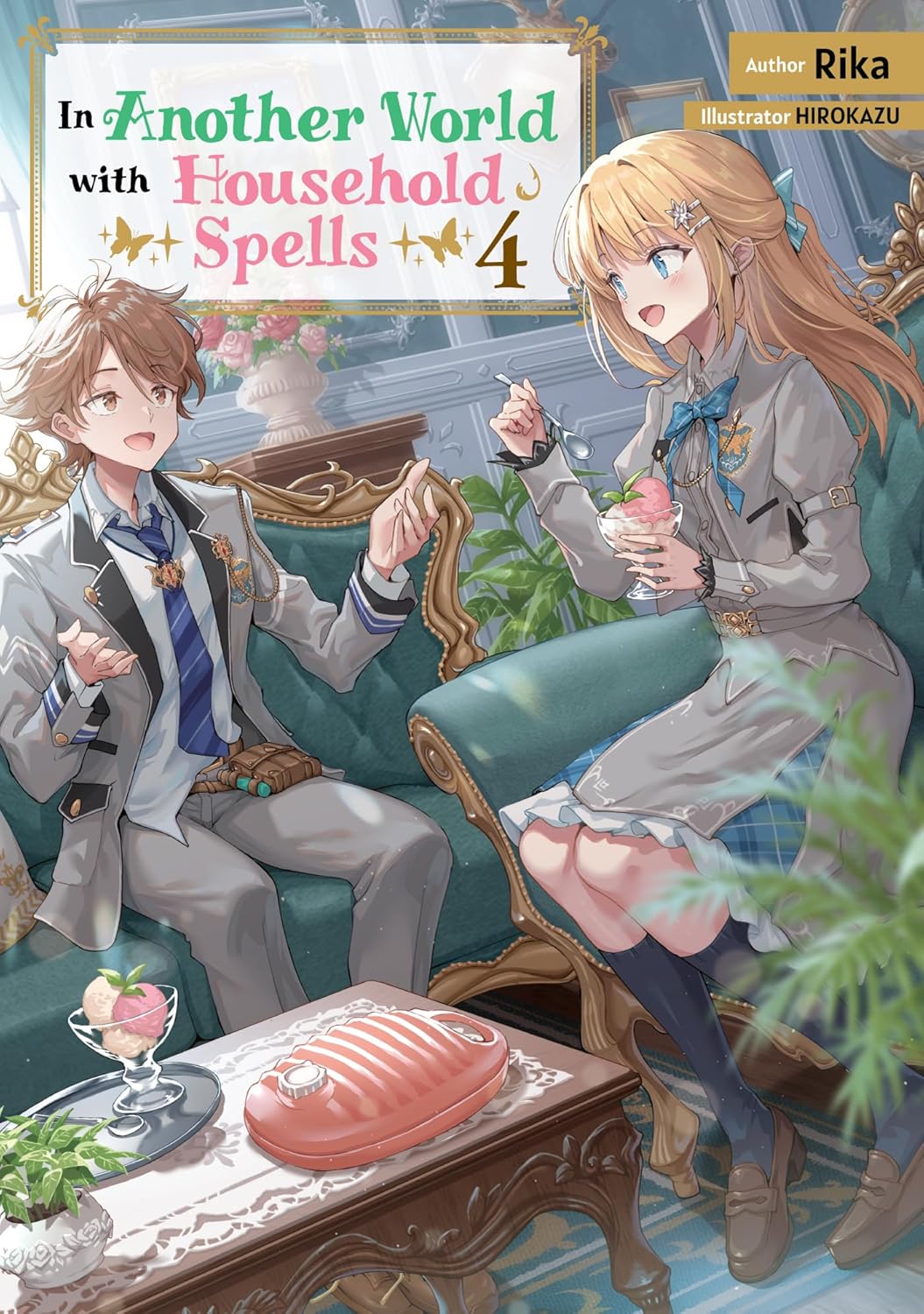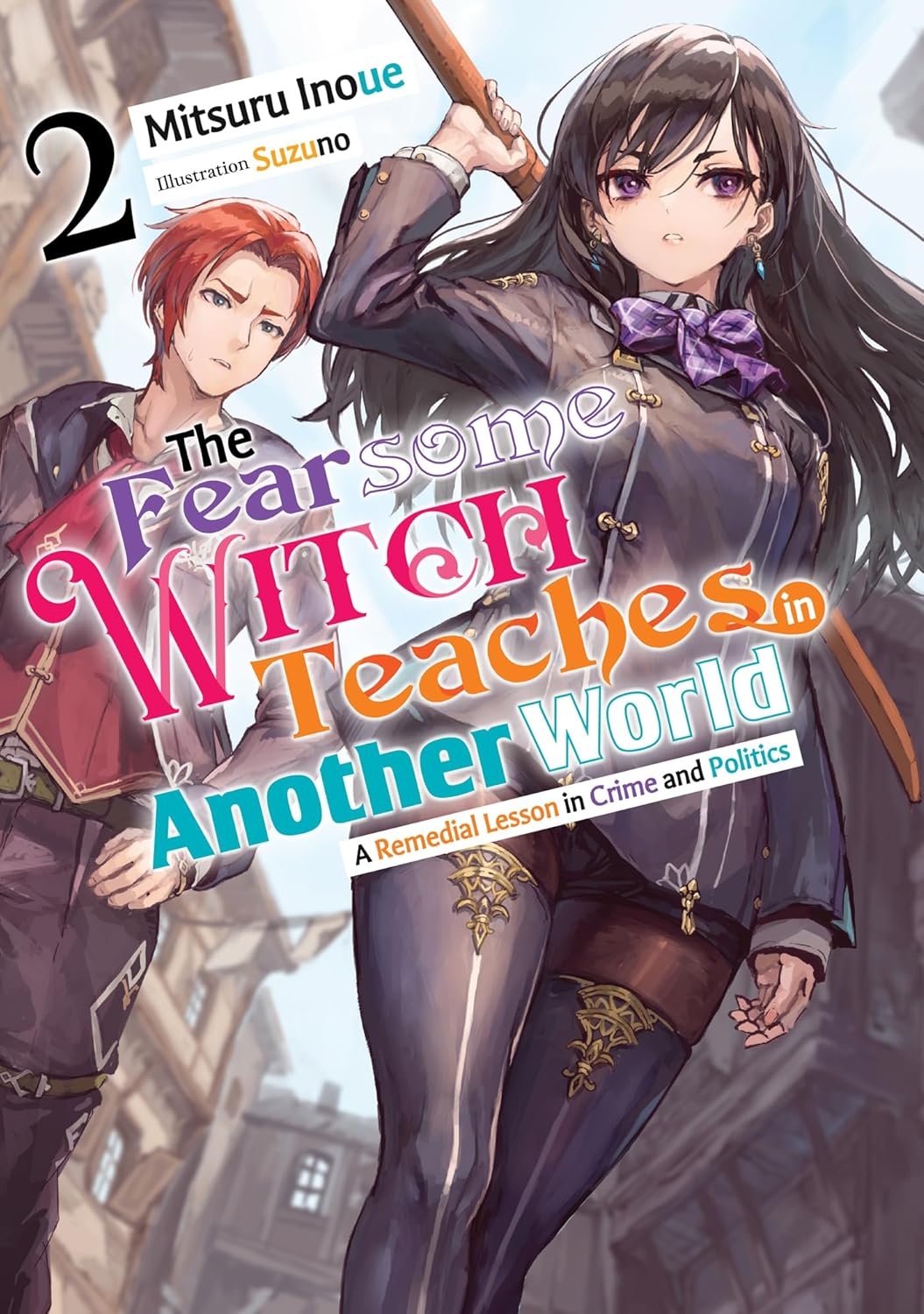Posted by Sean Gaffney
https://mangabookshelf.com/2026/02/26/manga-the-week-of-3-4-26/
https://mangabookshelf.com/?p=87498
SEAN: I’d make a March Comes in Like a Lion joke, but there’s no new volume of that series, and frankly February is Lioning pretty hard right now. Anyway, manga.
ASH: It’s dependable even when the weather isn’t.
SEAN: Airship has new print volumes for Sword of the Demon Hunter: Kijin Gentōshō 12, A Tale of the Secret Saint ZERO 4, The Too-Perfect Saint 5, and True Love Fades Away When the Contract Ends 3.
And in early digital they have The Strange Adventure of a Broke Mercenary 14 and The Tale of a Little Alchemist Blessed by the Spirits 2.

Ghost Ship has the fourth volume of Betrayed by the Hero, I Formed a MILF Party With His Mom! and the second volume of Virgin Ventures.
Inklore has a 2nd volume of King’s Maker.
ASH: BL manhwa with a good dose of court intrigue is probably something I should be reading.
SEAN: J-Novel Club is taking the week off – the only release next week is Looks like a Job for a Maid! 2.
Kana debuts Blades of the Guardians, a historical manhua described as “True Grit meets The Last Samurai”. I think this will appeal to fans of Vagabond and Lone Wolf & Cub.
ASH: Oh, yes. Yes, it does.
ANNA: Indeed!
SEAN: Kodama debuts MAGICA, a series I know nothing about except that everyone who sees it can’t stop talking about how gorgeous it looks. It does look gorgeous.
ASH: I had to look it up, too, but now I’m intrigued. The full-color artwork is very striking.
SEAN: Kodama also has the 11th and 12th omnibuses of Baki the Grappler and Smile! 2.
Three print debuts for Kodansha Manga. Lonely Deaths Lie Thick as Snow (Furitsumore Kodoku na Shi yo) is a mystery series from Magazine Pocket. A detective called to the scene of a burglary finds the corpses of 13 children. Now he has to track down the house’s owner.
ASH: That cover is beautiful even if the premise is distressing.

SEAN: Perfectly Fine on My Own, So My Fiancé Can Twist in the Wind (Ohitori-sama ni wa Naremashita node. Konyakusha Houchichuu!) runs in Comic Lake. It’s a broken engagement series, as you can see (I’m officially separating those out from villainess books), about a young woman whose fiancé pays no attention to her at all. So she decides to pay no attention to him, and stop caring about love. Suddenly, guess what?
ASH: I can only imagine!
ANNA: I have no idea!
SEAN: A double dose of debuts is next. We get Shugo Chara! 20th Anniversary Edition, an omnibus of the original shoujo manga from Nakayoshi. She’s a magical girl! And we also get Shugo Chara! Jewel Joker, the new sequel running (also in Nakayoshi) about Amu as a middle schooler.
ASH: Oh, wow, it’s been a long time since I’ve thought about Shugo Chara!.
ANNA: Alright!!!!
SEAN: Also in print: 10 Dance 8, The Heroic Legend of Arslan 22, How to Deal When Your Intimidating Neighbor is Actually an Omega 2, and Wind Breaker 20.
ASH: Great to see a new volume of 10 Dance!
ANNA: Note to self about reading this!
SEAN: Digitally there is How to Grill Our Love 19, Manchuria Opium Squad 11, and Tying the Knot with an Amagami Sister 20.
One Peace Books has Tetsu’s Coffee: A Beginner’s Guide to Coffee for Manga Lovers, which uses the power of manga to tell you how to make a really good cup of joe.
ASH: This book probably belongs in my house.
ANNA: Ooh I do enjoy a didactic manga from time to time.
SEAN: No danmei for Seven Seas this week, though we do get Lout of Count’s Family 7, which is Korean danmei, and The Twelve Kingdoms 4, which is far too fancy and good to be in the Airship imprint.
ASH: I am still so incredibly happy that The Twelve Kingdoms was rescued.
ANNA: I need to pick up a few volumes!
SEAN: For debuting manga, we have A Tale of a Little Alchemist Blessed by the Spirits (Outo no Hazure no Renkinjutsushi: Hazure Shokugyou datta node, Nonbiri Omise Keieishimasu), the manga version of the LN Seven Seas also puts out. It runs in Dengeki Comic Regulus.
ASH: I like alchemists.

SEAN: They Are Still Being Shaken This Morning (Kesa mo Yuraretemas) is a romcom from Shonen Champion. This is from the creator of My Monster Secret. Every morning, two shy yet adorable teens get on the train and don’t confess to each other. This manga is from the perspective of the rest of the train car, who all are desperately rooting for them.
ASH: That actually sounds really cute.
ANNA: This does sound cute.
SEAN: We Are Not Beasts (Ore-tachi wa Kemono Janai) is an omegaverse series from LiQulle, and is from the creator of Stay by My Side After the Rain. It’s a one-shot about an omega who’s sought after by two strong alphas, but wants to be self-reliant. Can that wish stay intact when he inevitably goes into heat?
Also from Seven Seas: Black Night Parade 9, Grandmaster of Demonic Cultivation: Mo Dao Zu Shi (manhua version) 13 (the final volume), I Got Married to the Girl I Hate Most in Class 5, The Kingdoms of Ruin 12, Mocha the Cat and His Forever Family 2, Monster Guild: The Dark Lord’s (No-Good) Comeback! 10, My Goddess is Precious Today, Too 2 (the final volume) and Tales of the Hundred Monsters Next Door 2.
Square Enix Books has an 8th print volume of The Apothecary Diaries.
ASH: I really need to start reading the novels!
SEAN: And Square Enix Manga has the 3rd volume of Assassin & Cinderella.
Steamship has a 3rd volume of SEX DRIVE – My Pitiful Makeup Artist.
Udon Entertainment has, according to retailers, Elden Ring: Official Art Book Volume III: Shadow of the Erdtree. It looks expensive and fancy.
ASH: Udon does a pretty good job of fancy.

SEAN: Viz Media debuts Magical Girl Dandelion (Mahou Shoujo Dandelion), a Sho-Comi series (Christ, when was the last time we got ANYTHING from Sho-Comi?) about a girl who is offered the chance to be a magical girl, but unfortunately her best friend is a villain!
ASH: Uh-oh!
ANNA: This sounds cute.
SEAN: They also have Chainsaw Man 20, Dragon Ball Super 24, Let’s Do It Already! 8, Nana 25th Anniversary Edition 3, Nue’s Exorcist 5, RuriDragon 3, Snow Angel 4 (the final volume), A Star Brighter than the Sun 5, Super Psychic Policeman Chojo 2, and World Trigger 28.
ASH: Nana remains excellent.
ANNA: Yes!
SEAN: And that’s it! Relatively short for a first week of the month. What interests you, my good fellow?
https://mangabookshelf.com/2026/02/26/manga-the-week-of-3-4-26/
https://mangabookshelf.com/?p=87498












